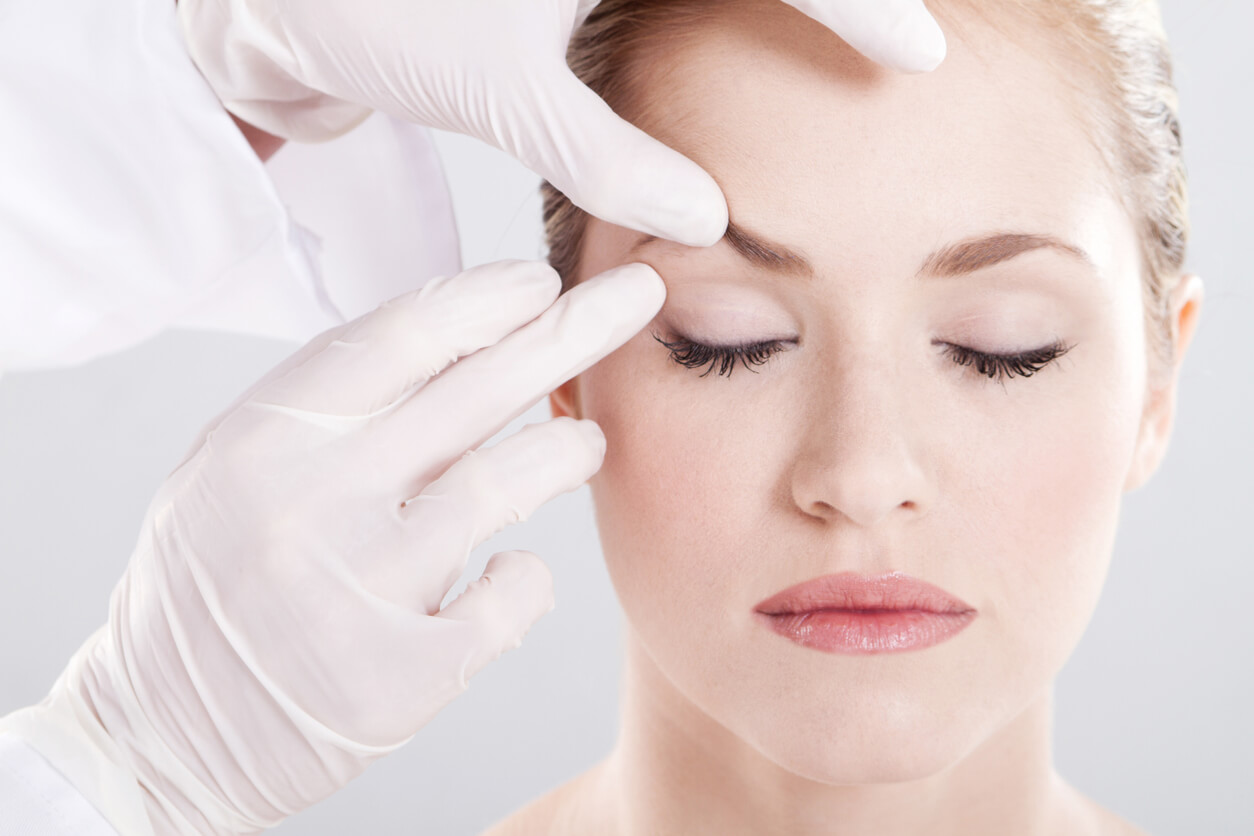The fact of the matter is, any time the skin is deeply cut, it will result in a scar. That said, Dr. Linville’s main priority is to minimize scarring as much as he can. In addition, there are things you can do to reduce the appearance of scars. To learn more about the plastic surgery recovery process, reach out to the top plastic surgeon in Houston, Dr. Linville.
How Your Surgeon Can Help Minimize Scars After Surgery
Scar Placement
In all cases, Dr. Linville will attempt to place the scar in a natural body crease or fold to hide it from sight. For example, scars are often hidden in the crease of a breast during breast augmentation. If there is no accessible crease or fold, the scar will be placed where it can be hidden by clothes, like when a tummy tuck scar is placed below the beltline.
Steroids
Steroids can be injected into thick or raised scars to soften them and improve their texture. Steroids thin out the surrounding skin and make it look paler.
Lasers
Laser treatments can improve both color and contour of a scar. This approach requires more than one treatment, however.
Revision Surgery
If your scar does not respond to other treatments, your plastic surgeon in Houston can surgically cut it out and re-suture the area. This time around, make sure to practice perfect skincare for your scar so it heals better.
Steps to Improving Scars After Surgery
Tape
You can minimize the risk of a scar becoming wider by taping it immediately after surgery. This step is most important for the first few weeks after surgery, but you can continue for up to eight weeks.
Daily Massage with Ointment
Keeping the scar moist and soft is essential for stopping if from getting dark and unsightly. Use an ointment such as Aquaphor daily and methodically massage the scar, pressing firmly on any area where you feel thick scar tissue under the skin. “Massage back and forth and in circles, on and around the incision until it feels like your normal, unscarred skin. Be patient– it can take months to see the maximum benefit [upmc.]”
Sunscreen
Make sure never to go out without sunscreen on your scar. This can help prevent additional pink or brown coloring and help the scar get lighter faster. Use SPF 30 or higher and reapply frequently.
Silicone
Hypertrophic scarring (thick pink scars) can be minimized using silicone. Silicone sheets or tape from the drugstore can be cut to fit the shape of the scar. Remove it before bathing or showering and reapply.
Things to Avoid to Minimize Surgery Scarring
Increased Tension
Try to avoid increases in tension or stress on the scarred area. If you have had a tummy tuck, do not do sit-ups; if you’ve had knee surgery, don’t do squats.
Smoking
Smoking decreases blood flow to the incision area, preventing enough cells from reaching and healing it. To encourage healing, stop nicotine use four weeks before and four weeks after surgery.
Essential Oils
Essential oils are “made from parts of certain plants like leaves, herbs, barks, and rinds. Makers use different methods to concentrate them into oils. (They can be added) to vegetable oils, creams, or bath gels. Or you might smell them, rub them on your skin, or put them in your bath. Some research shows that they can be helpful if you know how to use them the right way.” Always check the label and ask your plastic surgeon in Houston if you’re not sure if they’re OK for you to use.
To heal scars, essential oils are most effective when massaged into the scar mixed with a carrier oil such as coconut oil or jojoba oil. Undiluted oils are too strong to use straight. Also, never use essential oils on damaged or irritated skin; wait until your scar is completely healed before treating it with essential oils.
13 Essential Oils that Can Reduce the Appearance of Scars
- Rosehip seed oil – 6 weeks – may improve wrinkles and acne
- Vitamin E oil – 3 or more weeks – may boost collagen production
- Helichrysum oil – 3 or more months – anti-inflammatory, antifungal, and antibacterial properties
- Frankincense oil – 1 month – may improve skin tone and kill bacteria
- Geranium oil – 1 or more months – antibacterial and anti-inflammatory properties
- Lavender oil -1 week – antibiotic, antioxidant, and antiseptic properties
- Carrot seed oil – 1 month – antibacterial and antifungal properties
- Cedarwood oil – 1 month – anti-inflammatory and analgesic properties; may treat acne
- Hyssop oil – 3 or more months – may help heal wounds, prevent infections, and reduce the appearance of wrinkles and acne scars
- Coconut oil – 10 days – may soften the skin and reduce inflammation
- Tea tree oil – 1 month – antiviral, antibacterial, and antifungal properties
- Almond oil – 1 month – contains vitamin E; may soothe and moisturize skin
- Neroli oil – 1 month – may reduce pain and inflammation
Read more about these essential oils and their benefits for scars on healthline.com.
Plastic Surgeon in Houston
Dr. Cain Linville is a double board-certified plastic surgeon in Houston. Dr. Linville specializes in all surgical and non-surgical plastic surgery procedures and aims to provide the top surgery in Texas and the United States with “an unmatched safety rating.” He takes every precaution to minimize scarring in all surgical procedures. View Dr. Linville’s Before & After Photo Gallery to see his amazing results!





